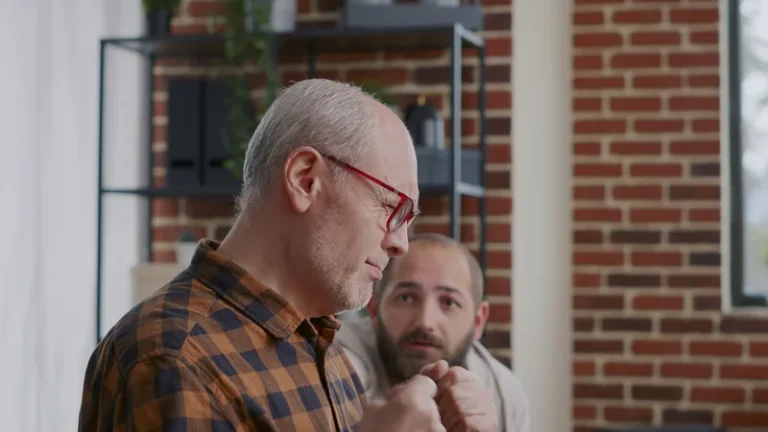It addresses some of the risks as well as some of the benefits of drinking alcohol when you have type 2 diabetes. It also provides guidelines for how to safely include alcohol in a type 2 diabetes diet (if you so choose). While moderate alcohol consumption lowers blood sugar, heavy consumption is harmful to diabetes and other aspects of health. The risk of hypoglycemia is why experts advise people with diabetes not to drink alcohol if their blood sugar is already low. If a person chooses to drink, they should always eat at the same time and include carbohydrates, such as fruits, vegetables, or grains, in their meal. When you drink alcohol, the liver has a difficult time doing both of these jobs at the same time.
Who Should Not Drink Alcohol?
- To make this easier and help you reach your goals more quickly, I’ve created a Protein Cheat Sheet that guides you in building meals with 30 to 60 grams of protein.
- So you may not know if your blood sugar is low or what you’re feeling is just the effects of the alcohol.
- Too much alcohol can also affect your ability to know your blood sugar is low and to treat it.
- Feelings of anxiety/depression was defined as (yes, to a certain extent, and highly) versus (no, I am not) and based on a question about health today.
- A total of 565 diabetes cases were identified during follow-up (321 in men and 244 in women).
Several findings concerning the involvement of chronic, heavy alcohol consumption in glucose metabolism is negatively correlated with diabetes and alcohol that of insulin concentrations, in addition to the fasting insulin levels. It has been reported that chronic high doses of alcohol alone have been exhibited to be efficient in producing reversible insulin resistance 12. High concentrations of ethanol may lead to reduced insulin binding 13 and inhibition of intracellular signalling related to that of insulin 14.
- It has also been suggested that moderate drinkers have beneficial life circumstances compared to non-drinkers that has not been adequately taken into account.
- The risk for low blood sugar remains for hours after you take your last drink.
- In non-drinkers 2.9% reported HED, while 4.8% of light, 9.9% of moderate and 37.2% of high consumers reported HED.
- BDNF have received attention, regarding a possible role in regulating neuronal survival, differentiation, synaptic plasticity, cognitive function and memory.
- For a list of covered benefits, please refer to your Evidence of Coverage or Summary Plan Description.
How Does Alcohol Impact Type 2 Diabetes?
Since all respondents were diabetes free when filling in the questionnaire, this misclassification is non-differential and would, if anything, underestimate the protective effects of consumption at moderate levels. Furthermore, the potential confounders were also based on self-reported data and any mismeasurements in these may result in residual confounding. Out of 16,223 participants, 6% were non-drinkers, 21% light, 48% moderate and 25% had high consumption (Table I). In non-drinkers 2.9% reported HED, while 4.8% of light, 9.9% of moderate and 37.2% of high consumers reported HED. Non-drinkers were more likely to have low occupational position on the labour market (44%) compared to moderate consumers (25%), to be unemployed (14% versus 9%), and to live alone (28% versus 16%). They also had slightly higher mean BMI (25.2 versus 24.4) and were older (mean age 49.7 versus 47.4).
Alcohol consumption guidelines
But if you have diabetes and want to enjoy happy hour, it’s best to take an approach that offers you some protection. That said, when it comes to alcohol, people with blood sugar problems should always remain cautious. In an average person, the liver breaks down roughly one standard alcoholic drink per hour. Any alcohol that the liver does not break down is removed by the lungs, kidneys, and skin through urine and sweat.
- Don’t use dangerous equipment, or engage in activities that require coordination, concentration, or alertness.
- Over time, excessive alcohol consumption can reduce the overall effectiveness of insulin.
- Because many of the symptoms of hypoglycemia—such as slurred speech, drowsiness, confusion, or difficulty walking—are also symptoms of being drunk, it can be difficult to tell the two apart.
- A reduced fat oxidative capacity and metabolic inflexibility are important components of muscle insulin resistance 29.
- Hypoglycemia (low blood sugar) unawareness occurs when someone with diabetes has a drop in blood sugar but doesn’t recognize the symptoms.
People with diabetes should be honest and realistic with their healthcare provider about what they enjoy drinking and how https://ecosoberhouse.com/article/you-are-not-powerless-over-alcohol-and-heres-why/ much alcohol they typically consume. Information from a healthcare provider will provide the best advice on how to drink alcohol safely. Hypoglycemia is a frequent and substantial problem after alcohol consumption, in people with both type 1 and type 2 diabetes. The hazards are greater for people who take medications that are known to cause hypoglycemia, especially insulin and sulfonylureas.
- Some alcoholic drinks also have a lot of calories, which can cause weight gain.
- Excess weight can contribute to the onset of type 2 diabetes, and it can make the condition worse.
- A person’s overall health plays a significant role in how their body responds to alcohol.
- Drinking without eating food at the same time also greatly increases this risk.
Can people with diabetes drink alcohol?
The use of rapid insulin could make the morning-after hypoglycemia even more extreme. It may be safer to avoid sugary booze — and safer still to avoid any alcohol in the first place. Some alcoholic drinks are worse than others when you have type 2 diabetes. Certain types of alcohol are especially high in carbs and sugar, even if you drink them straight. Drinking alcohol in moderation has also been linked to a number of other health benefits, such as increasing the amount of good cholesterol (HDL) in the blood. This may help lower the risk of heart disease, which you’re at greater risk for if you have type 2 diabetes.






